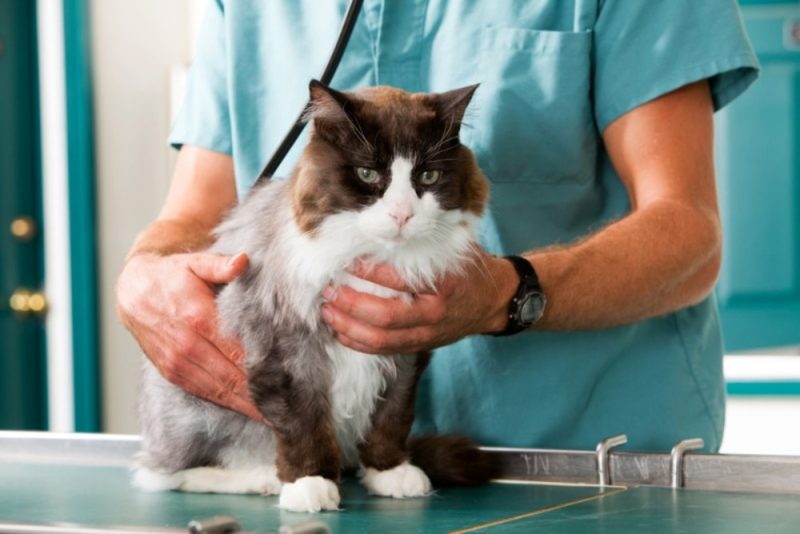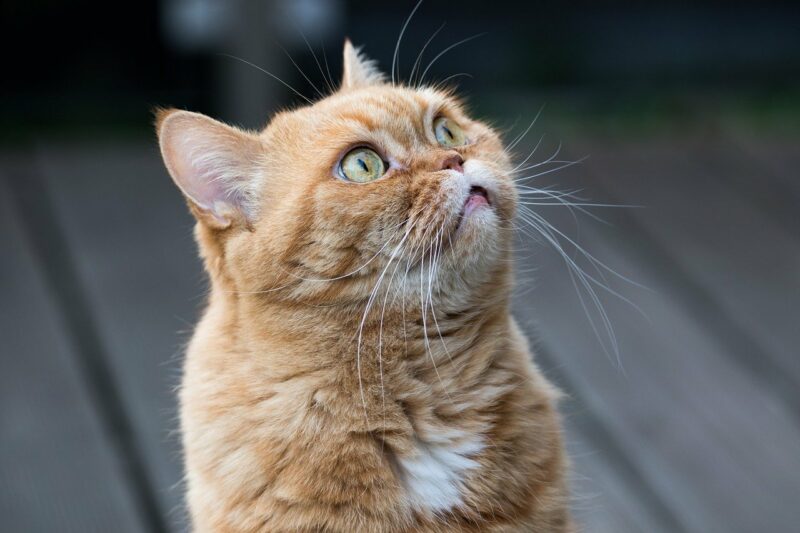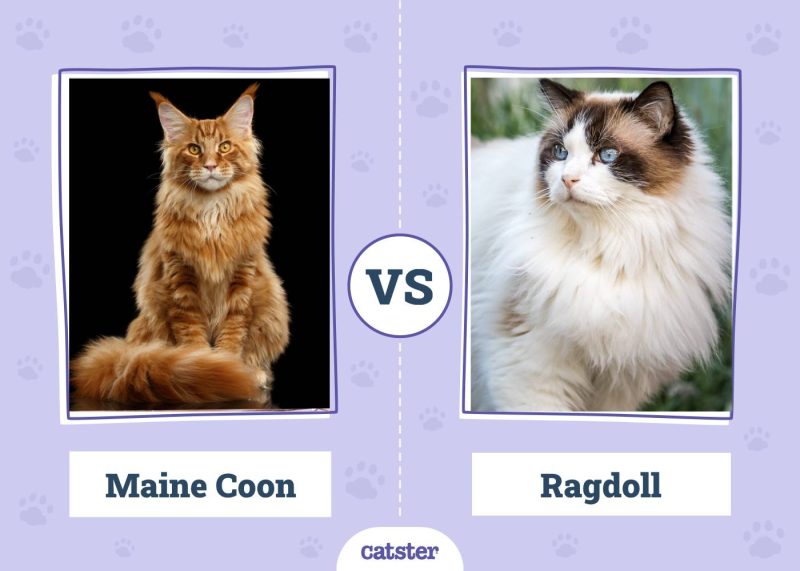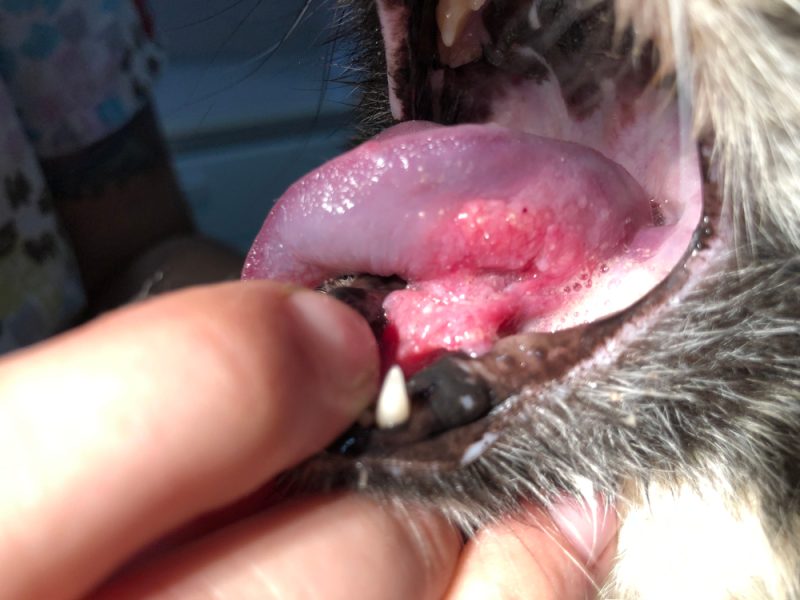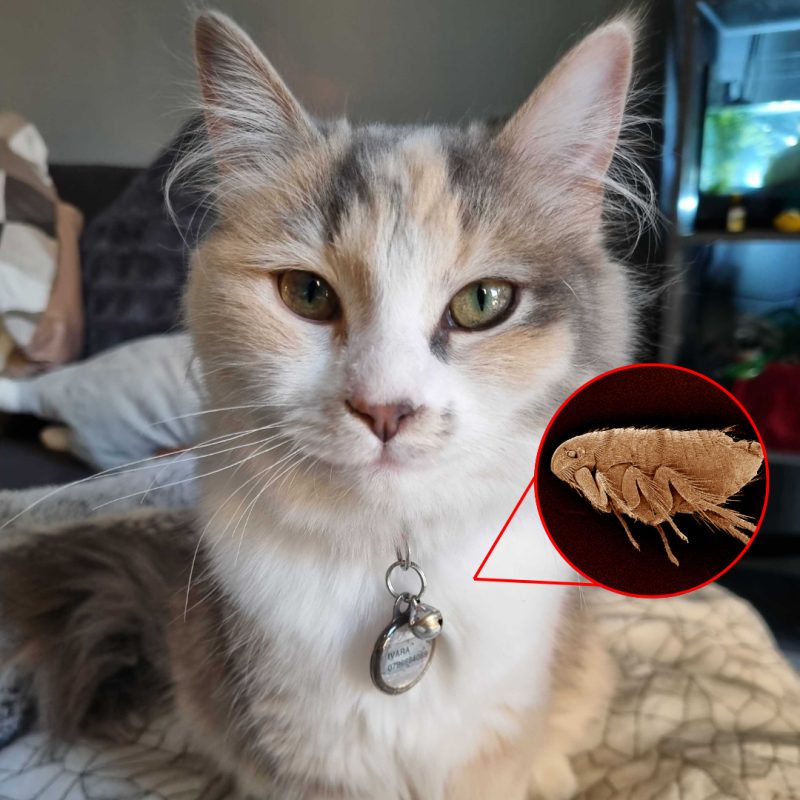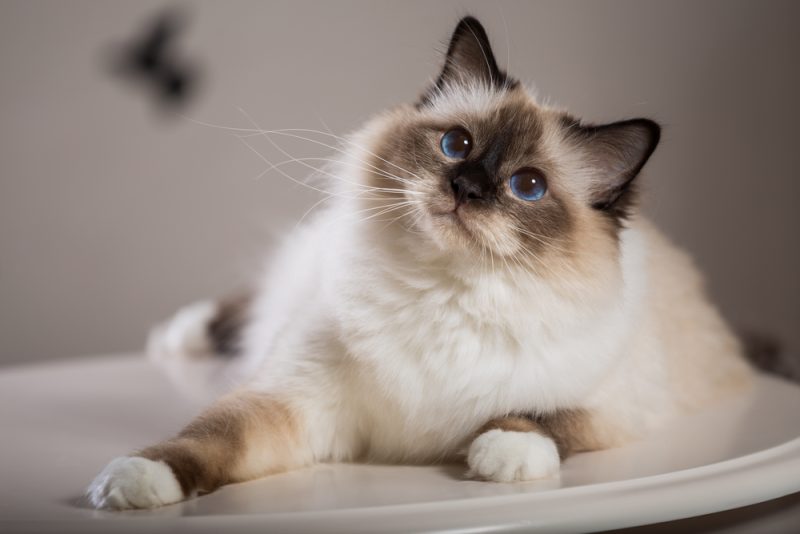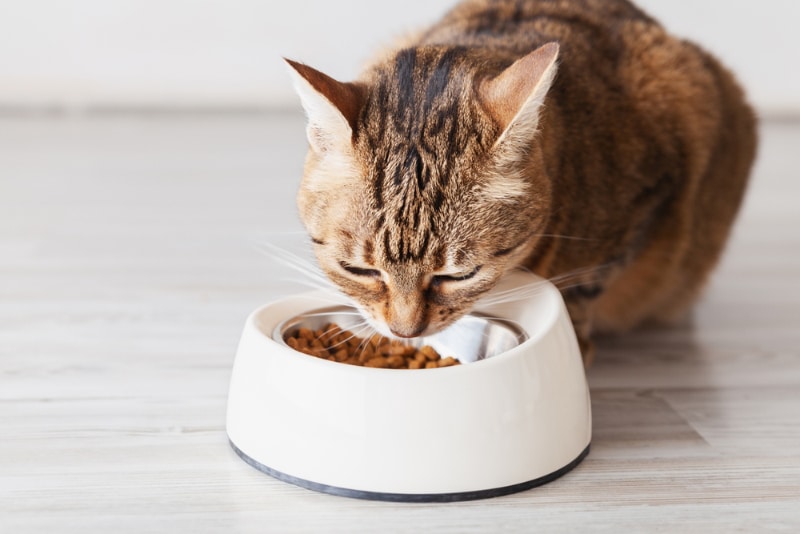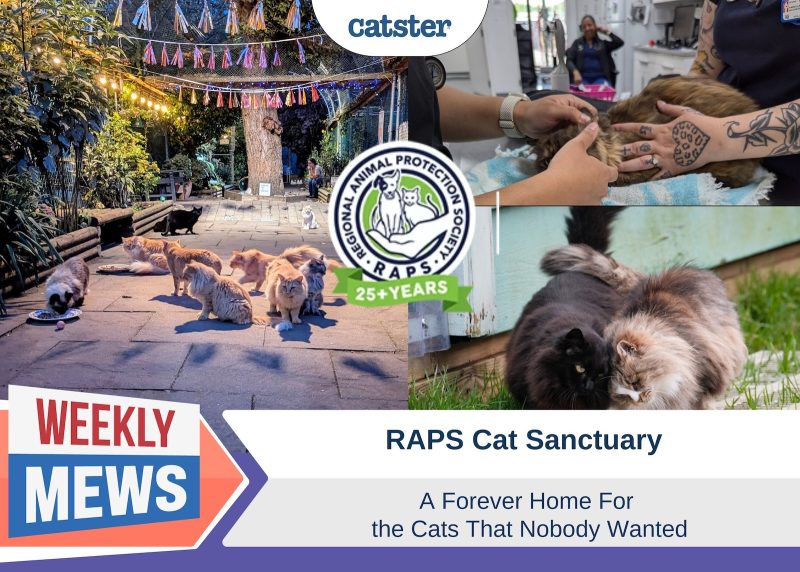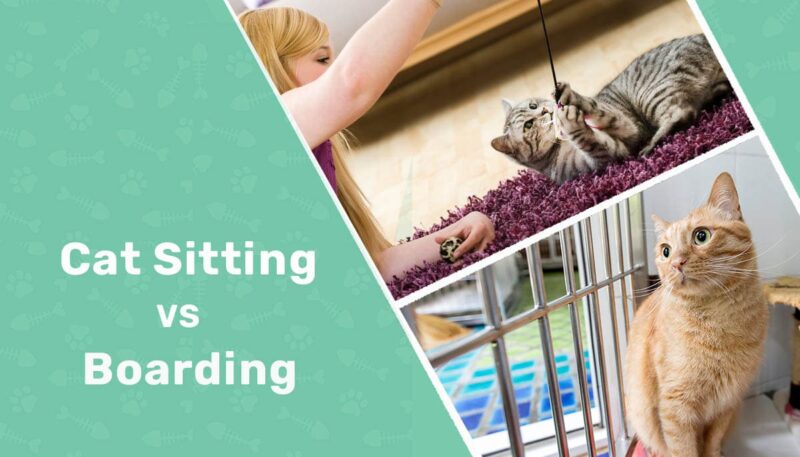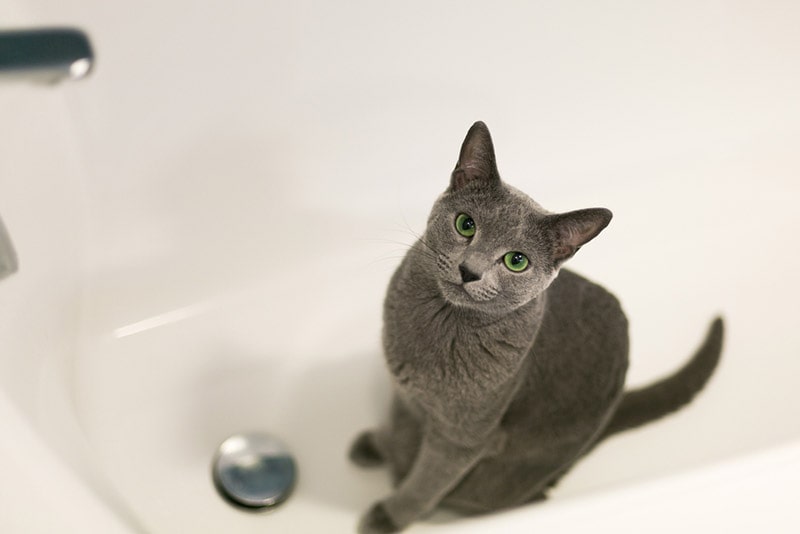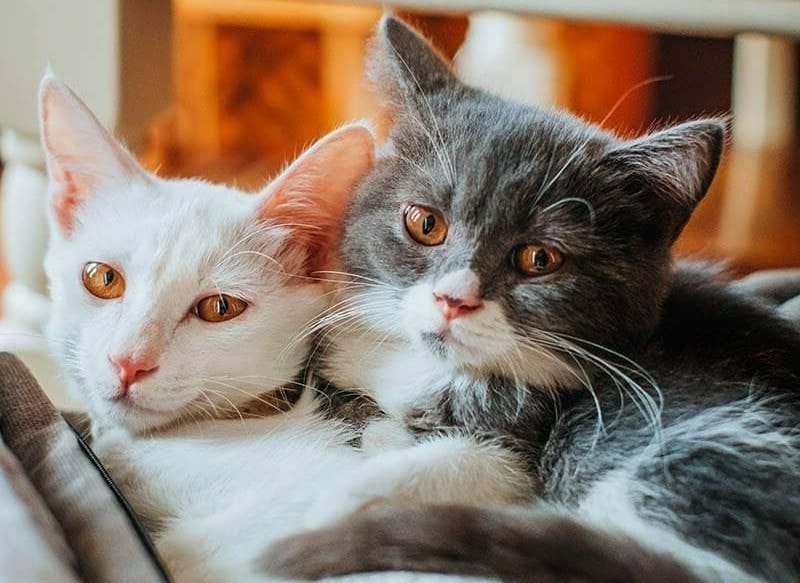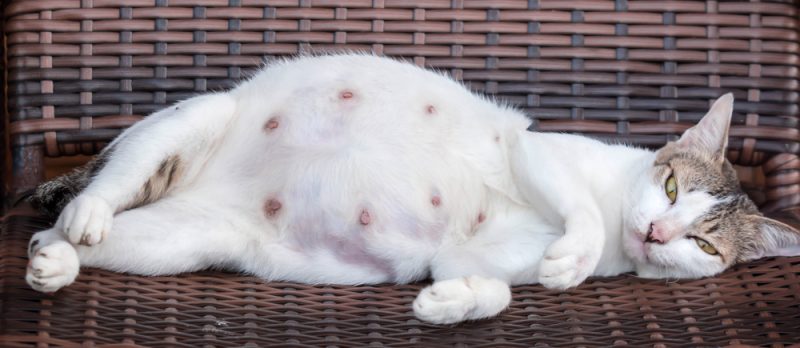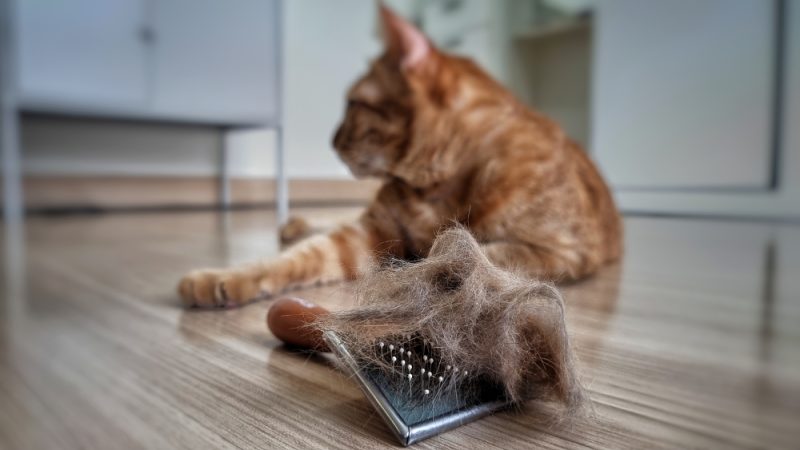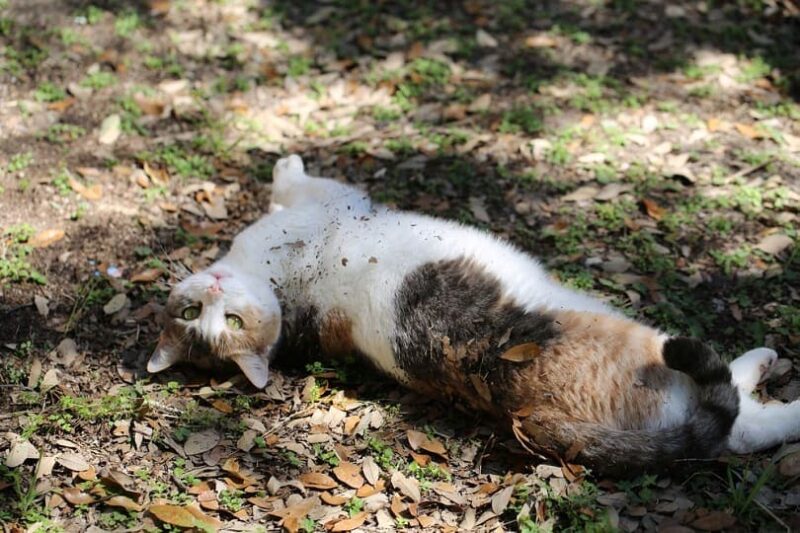In this article
View 5 More +Taking care of a cat experiencing gastrointestinal symptoms can be quite an ordeal and cause a significant amount of stress for both you and your cat. A gastrointestinal sign that may impact your cat and make them feel ill is colitis. But what exactly is colitis, and what are some of the signs you need to look out for? Continue reading to learn more about the possible causes of colitis and how your vet will likely address the issue.

What Is Colitis?
Colitis is simply the inflammation of the colon. When this occurs, “large bowel diarrhea” may occur. This term is used to reference soft stool often associated with an increased urgency to defecate. When inflammation or infection changes the intestinal lining of the large intestines, water absorption is unable to occur effectively, which is what leads to urgent bowel movements.
If you need to speak with a vet but can't get to one, head over to PangoVet. It's an online service where you can talk to a vet online and get the advice you need for your pet — all at an affordable price!

What Are the Signs of Colitis?
- Increased urgency to defecate
- Blood in stool
- Mucus in stool
- Accidents in the house
- Small amounts and increased frequency of diarrhea
- Straining to defecate
- Vomiting
Causes of Colitis in Cats
Cats can develop colitis due to several underlying causes. A few common causes of colitis in cats include food allergies, infection, stress, and dietary indiscretion 1.
Dietary Indiscretion
Dietary indiscretion is the consumption of food or items outside of the pet’s normal repertoire. This can cause an upset stomach and large bowel diarrhea. This type of colitis is generally acute and has the potential to resolve quickly with appropriate care.
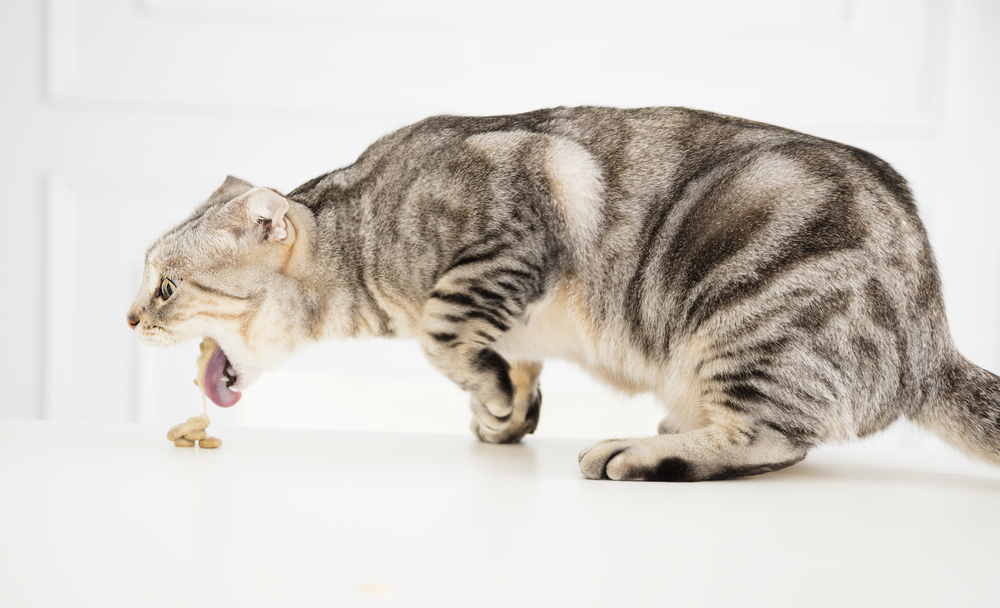
Infections
There are several types of gastrointestinal parasites, and parasitism must be considered for any cat experiencing colitis. Parasites that can cause colitis include whipworms and giardia. Often, cats will be treated with a broad-spectrum antiparasitic drug. A colitis-causing protozoan parasite that impacts young cats called Tritrichomonas foetus does not respond to typical parasitic treatments. The prognosis for cats with Tritrichomonas foetus is good and diarrhea may even resolve without intervention.
Viral and bacterial pathogens can also lead to colitis. It is important to know the FELV (Feline Leukemia Virus) and FIV (Feline Immunodeficiency Virus) status of any cat with ongoing diarrhea.
Inflammatory Bowel Disease/Food Allergies
Inflammatory bowel disease (IBD) is a syndrome in which the gastrointestinal tract creates an inflammatory response to a specific stimulus. There are several different causes of IBD, including food allergies and infections, which can result in colitis. IBD results in thickening of portions of the gastrointestinal tract which prevents normal nutrient absorption from occurring. This can lead to weight loss and a ravenous appetite.
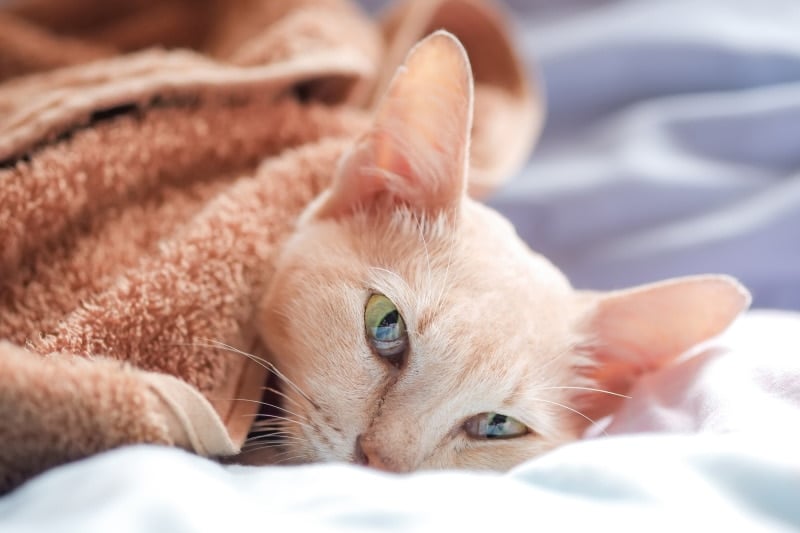
Stress Colitis
Animals under stress, whether from boarding, travel, or another source, may develop colitis. Stress colitis can quickly improve with dietary support and time. Modalities that have been proven to reduce stress, like pheromones and certain probiotics, may be helpful in these patients.

Diagnosing Colitis in Cats
If your companion is experiencing recurrent or persistent signs of colitis, veterinary care should be sought. Your veterinarian will listen closely to your cat’s history and clinical signs prior to recommending diagnostics. In most cases, a fecal sample will be evaluated. Blood work, including a CBC and chemistry, should be evaluated to identify other possible abnormalities. Colitis itself is not a diagnosis but a sign of another condition. Successful treatment of colitis is dependent on diagnosing the primary cause.
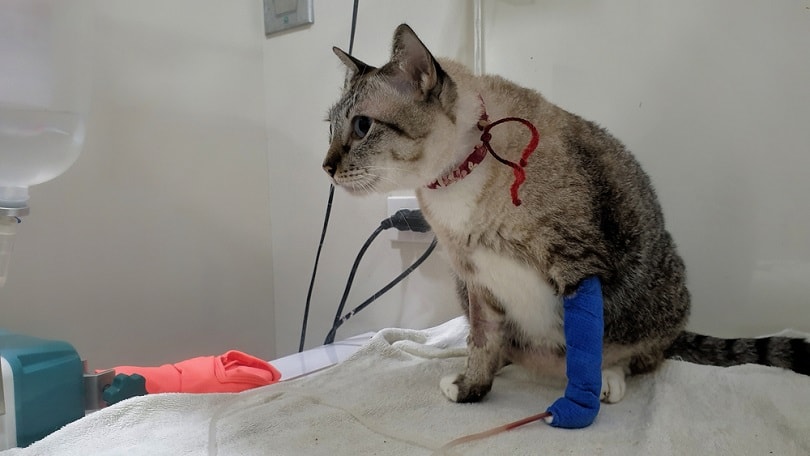
1. Fecal Floatation
The fecal floatation test is a common test done to screen for different types of gastrointestinal parasites. This test can be done in a hospital or at a reference laboratory.
2. PCR Test
A PCR test can be done at an outsourcing lab that tests for common gastrointestinal pathogens, including viruses. This test can provide a diagnosis through the recognition of pathogen DNA.
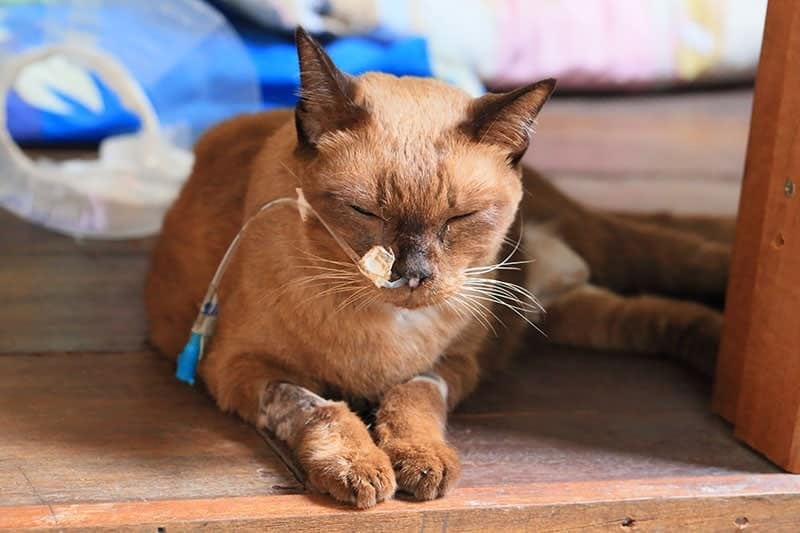
3. Feeding Trials
Unfortunately, some cats may have food allergies or sensitivities. Your veterinarian may recommend a feeding trial on a particular diet. If your companion improves while on a special diet, this may be supportive of a food allergy or sensitivity.
4. Biopsy
If less invasive diagnostic avenues are pursued but improvements are not made, it may be time to discuss an intestinal biopsy. An intestinal biopsy allows the layers of the intestines to be closely evaluated and abnormalities identified.
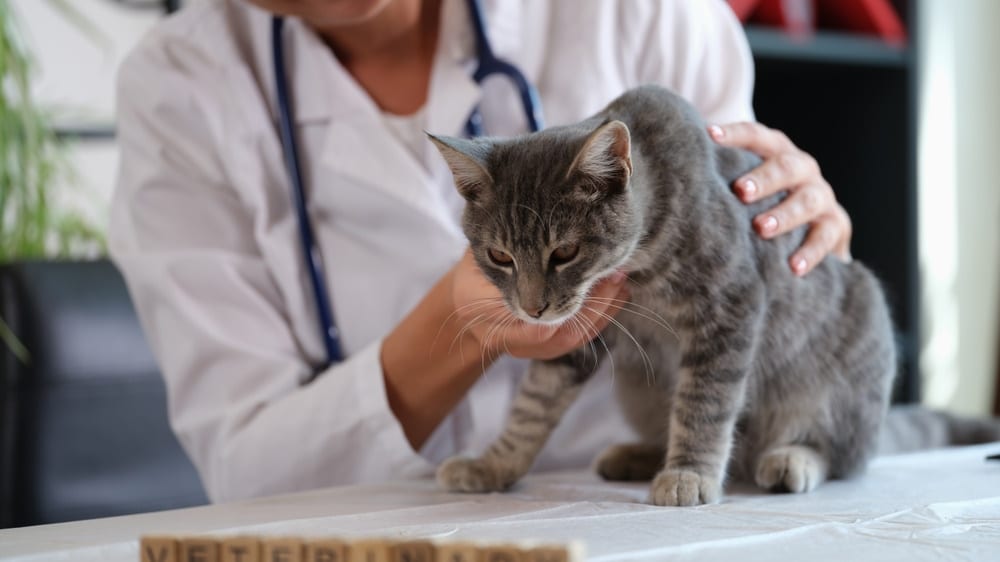
5. Treating Colitis
The successful treatment of colitis is dependent on the underlying cause. Antibiotics may be necessary for certain bacterial pathogens, whereas antiparasitic would be indicated in the event of a parasitic infection.
If the colitis is acute and not severe, it is possible that supportive care may be initiated at first. This may require a bland diet for several days, and if concurrent dehydration is present, fluid therapy may be needed.
For cats with suspected food allergies or inflammatory bowel disease, a hydrolyzed or novel protein diet may be necessary. Some of these patients may require further interventions like steroids.

How to Care for a Cat With Colitis
If your cat is struggling with colitis, it is important to follow care instructions from your vet closely. Cats can be very particular with their litter boxes, so it is pertinent that good care is taken to ensure the litter box remains clean. Encourage hydration through the consumption of fluids, whether from canned food or water consumption.
Continue to closely monitor your cat for signs of improvement or regression. Seek veterinary help if your companion is not improving as anticipated.
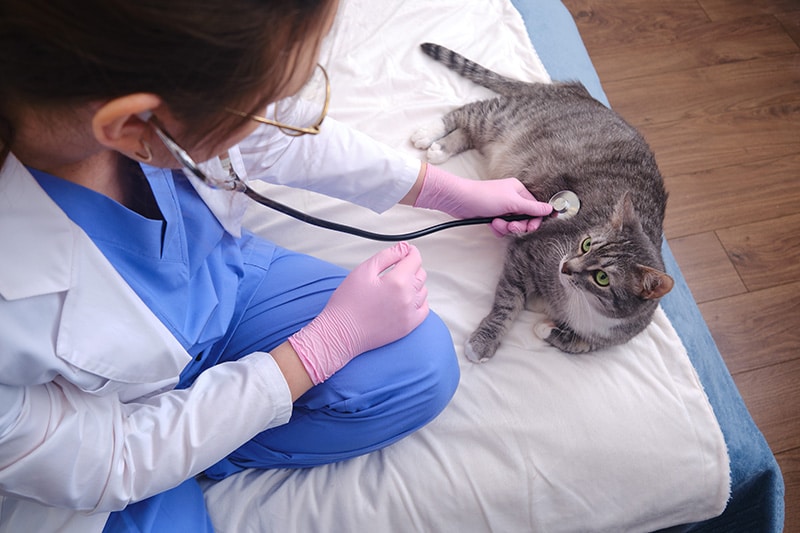

Frequently Asked Questions
My cat has been experiencing colitis and has been placed on a special diet. How long do I need to keep feeding the special diet?
It depends on what the diet is being used to treat. If the signs of colitis have been very acute and associated with stress or dietary indiscretion, a bland diet may have been prescribed for the short term.
Alternatively, if there is suspicion that your cat has IBD or food sensitivities, your veterinarian may want to try your cat on a hydrolyzed or novel protein diet for several weeks. If this diet works well, your cat may benefit from permanently staying on this diet.
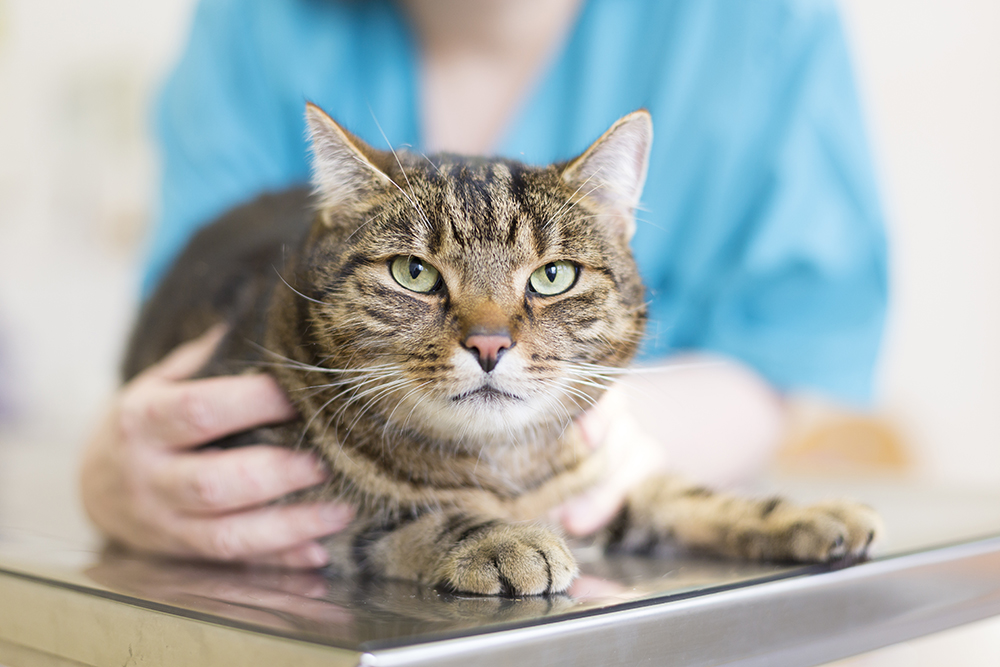
What is the overall prognosis for colitis?
The overall prognosis is dependent on the underlying cause of colitis. Fortunately, several causes of colitis can be easily treated under the care of your veterinarian.

Conclusion
Caring for a cat with colitis can be challenging and frustrating, as there are often messes occurring outside of the litter box. There are several causes of colitis, and not all forms of colitis are treated the same. Your veterinarian can help guide you toward the best diagnostics and treatment options based on your pet’s physical examination and history.
The prognosis of colitis is good when the cause is correctly identified, although some causes of colitis may result in intermittent reoccurrences.
Featured Image Credit: Tyler Olson, Shutterstock
